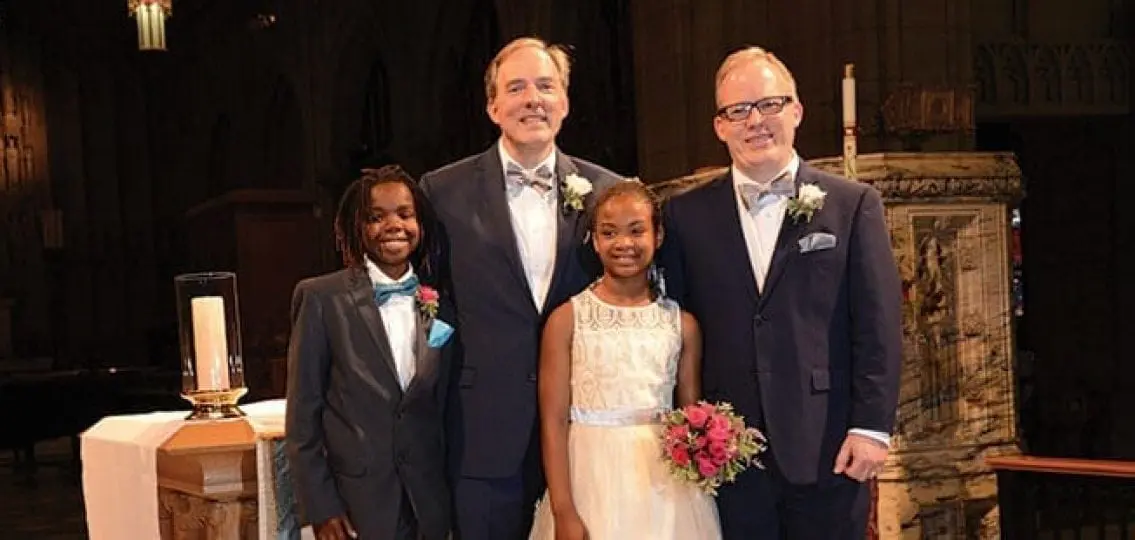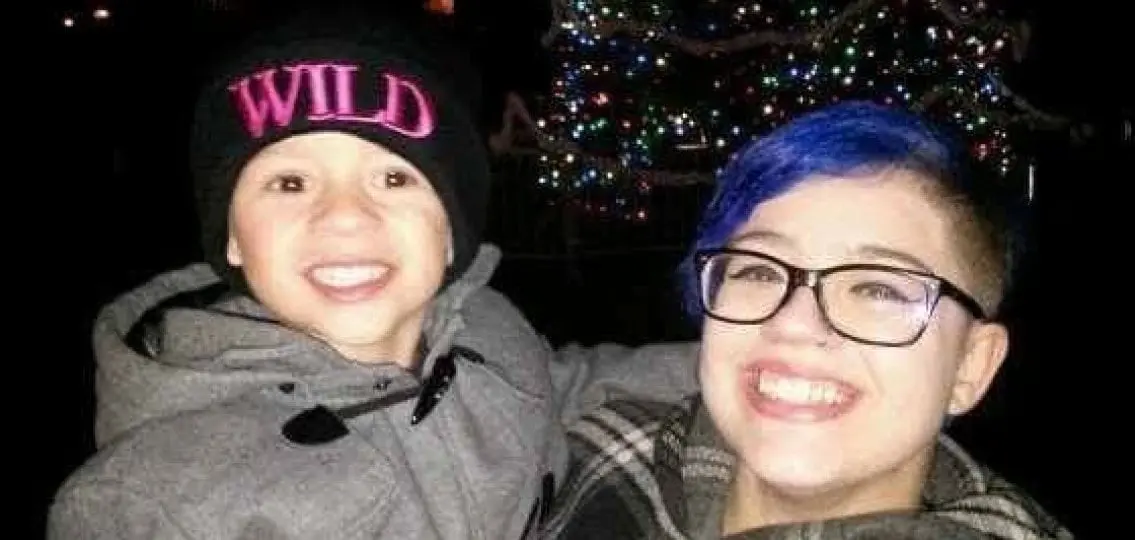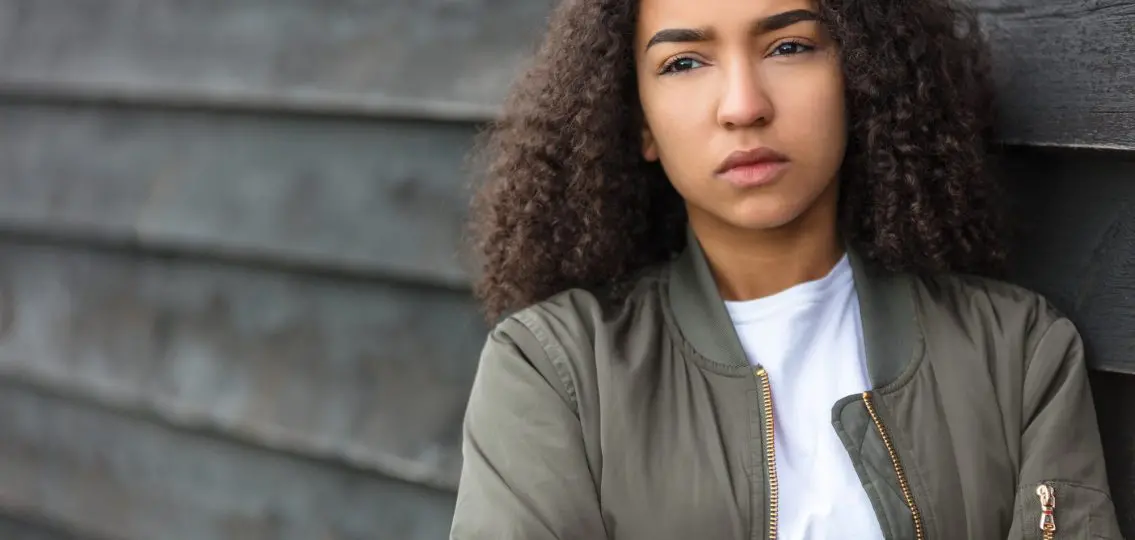When I met Angela for the first time, she was sitting at a table with her attorneys, child advocates, and adoption agency representatives. She had her face down and wouldn’t look at me. She was seven years old.

Open to Adoption
Why was I here? A happily married, African American mom with six children of my own, including three stepchildren whom I adored – for most in my situation, adoption would be unlikely, even unthinkable. But ever since I can remember, I’ve wanted to adopt a little girl. I was completely open to adopting an older child.
I had read the agency report on Angela – it was as thick as a dictionary. By age seven, she had lived with ten different foster families. In less than a decade, Angela had experienced more difficulties than most do in a lifetime.
I fell in love with her on the spot. I knew I needed to rescue her.
A Difficult Transition
In less than two weeks, Angela had moved in, but the transition was more challenging than my husband, Larry, and I had expected.
Angela was different than my other children, who were generally well-behaved. The attitude, the temper tantrums – those were new to me. Angela destroyed my mother’s comforter, she used racial slurs in my home, and she threw things.
“You going to get rid of me?” she’d scream.
One day she was having a fit and I just got fed up. I said, “You want to tear up the room? Let’s tear up the whole room!” and I started throwing her clothes and pillows around right alongside her.
She started hitting herself; I started hitting myself. She laughed and said I was crazy, and I said, “Guess what? This crazy person adores you. I know what you’re doing, and you’re not going anywhere. You’re part of the family and I love you.”
Building Trust with an Adopted Child
As time went on, Angie began to trust me, and realized that I love her, unconditionally. With my own children, that trust and loyalty was almost guaranteed; with Angie, because of her past, I had to earn it.
Angela is white, and being a mixed race family has its ups and downs. When people see us all together, they do a double-take, and sometimes she is treated differently by strangers.
I have to explain to her that this is the world we live in, and some people have prejudices for different reasons. I admit that I don’t like it, but it does teach you to be humble and patient. On the other hand, the benefit of being a mixed race family is that it teaches my children to love everybody no matter what color their skin is.
Now 16, Angie is on the honor roll and decided that she wants to become a nurse. What got her to this place was unconditional love and support. My advice for parents is to be supportive of whatever their child wants to do – if they want to collect trash, tell them they’ll be the best trash collector there can be.

After everything I’ve been through, I’ve learned that no matter whether your children are biological, step, foster, or adopted – they have to know that you put them first.




